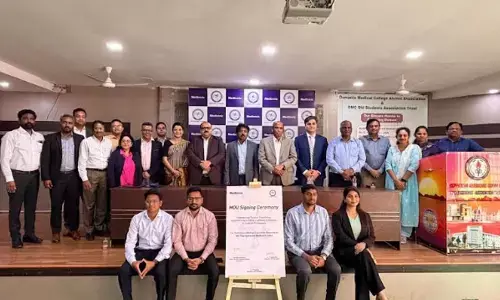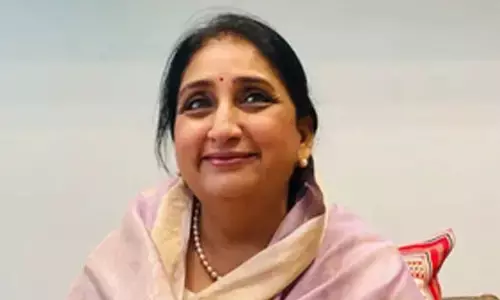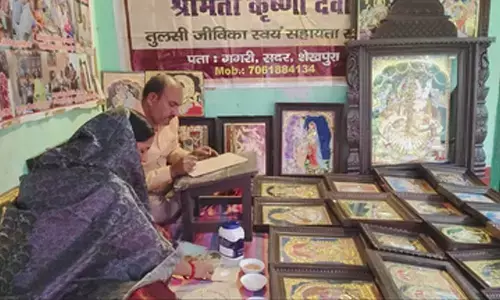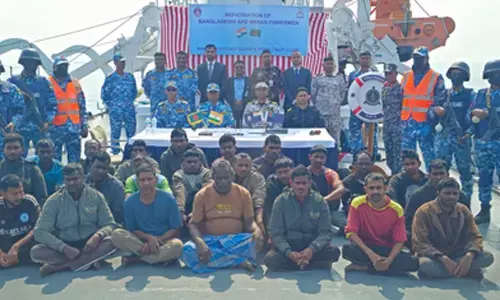10 top Indian women scientists
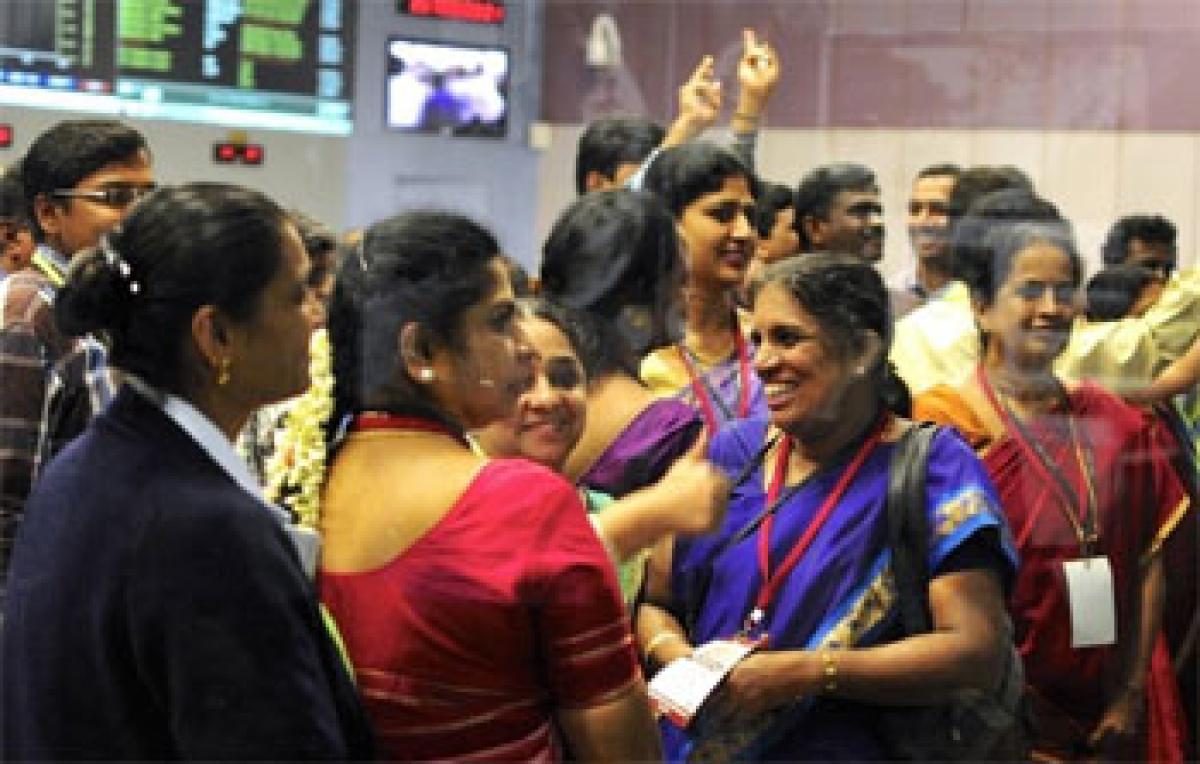
The good news is that there is an increasing number of women receiving education in the sciences in India. Working in science has not been easy for women, with its long hours, societal biases, and the need to get married and have children in between. Let’s look at some of these women, often forgotten heroes, who have made great contributions to science and paved the way for others.
One of the most talked about images from India’s Mars Orbiter Mission (MOM) was that of women scientists in ISRO celebrating the success of the mission. The most ironic thing – it was the very first time we were seeing a visual of women in science in India. Ask anyone to name an Indian scientist and you can probably bet that most names will be male
The good news is that there is an increasing number of women receiving education in the sciences in India. Working in science has not been easy for women, with its long hours, societal biases, and the need to get married and have children in between. Let’s look at some of these women, often forgotten heroes, who have made great contributions to science and paved the way for others.
Anandibai Joshee (1865 – 1887)
This list has to start with a mention of Anandibai Joshee, (she along with Kadambini Ganguly was one of the first Indian women doctors qualified to practice western medicine).
Dr. Joshee’s short life was full of hardships; her family used to be rich landlords in Kalyan, Mahasrashtra, but they lost all their riches, and she was married at age 9 to a widower 20 years her senior. She gave birth at age 14 to a son who died shortly afterwards, and she herself suffered from poor health with an undiagnosed condition that often left her exhausted with shortness of breath and constant headaches.
The death of her newborn son due to inadequate medical care is what inspired her to become a physician. She was also encouraged by her husband to study medicine abroad. Dr. Joshee, MD was in the class of 1886 at the Women’s Medical College of Pennsylvania (which was the first women’s medical program in the world).
On her return to India, she was appointed as the physician-in-charge of the female ward of the local Albert Edward Hospital in the princely state of Kolhapur.
Janaki Ammal (1897-1984)
While most girls at the time were studying fine arts and literature, Janaki Ammal decided to pursue Botany, and later scientific research in cytogenetics and phytogeography. She worked briefly in the UK, but returned to India in 1951 to reorganise the Botanical Survey of India (BSI). She served as the Director-General of the Botanical Survey of India (BSI). She also did work on medically important and economically valuable plants.
Kamala Sohonie (1912–1998)
Dr. Sohonie was the first Indian woman to get a Ph.D in a scientific discipline. She applied to the IISc for a research fellowship and met with rejection merely because she was a woman! Prof. CV Raman, then IISc Director was dead against having women students. She then became the first of his female students, and performed so well that Prof. Raman gave her permission to pursue further research.
While at Cambridge, she found that every cell of a plant tissue contained the enzyme ‘cytochrome C’ which was involved in the oxidation of all plant cells. In fact, her 40 page PhD thesis was based on this. The subjects of her research were often on food items consumed by the poorest people. She started her pioneering work on the nutritional value of Neera.
Anna Mani (1918-2001)
Anna Mani was an Indian physicist and meteorologist. She also worked under Prof CV Raman and eventually became a meteorologist and retired as the Deputy Director General of the Indian Meteorological Department (IMD). She published several research papers and made significant contributions in the field of meteorological instrumentation.
Asima Chatterjee (1917 – 2006)
Asima Chatterjee was an Indian chemist noted for her work in the fields of organic chemistry and phytochemistry (chemicals derived from plants). Her most notable work includes research on vinca alkaloids (derived from the periwinkle that is known for its anti-cancer properties), and the development of anti-epileptic and anti-malarial drugs. She also authored a considerable volume of work on medicinal plants of the Indian subcontinent.
Rajeshwari Chatterjee (1922-2010)
Rajeshwari Chatterjee was the first woman engineer from Karnataka. In 1946, she was given a scholarship by the (then) Govt of Delhi to study abroad, and studied at th University of Michigan where she obtained her Master’s degree from the Department of Electrical Engineering. After obtaining a Ph.D degree, she returned to India and joined the Department of Electrical Communication Engineering at IISc as a faculty member where she along with her husband set up a microwave research laboratory where they did pioneering work on Microwave Engineering.
Darshan Ranganathan (1941 –2001)
She was an organic chemist from India who was known for her work in bio-organic chemistry, including “pioneering work in protein folding” and “supramolecular assemblies, molecular design, chemical simulation of key biological processes, synthesis of functional hybrid peptides and synthesis of nanotubes.”
Her husband was also a professor of chemistry at the Indian Institute of Technology, Kanpur and due to an unwritten rule that forbids spouses from simultaneously holding faculty positions in the same department, she languished as a research associate.
She eventually joined IICT, Hyderabad in 1998, where she became Deputy Director. After her death from breast cancer in 2001, her husband instituted the biennial “Professor Darshan Ranganathan Memorial Lecture”, which is to be “delivered by a woman scientist who has made outstanding contributions in any field of Science and Technology”.
Maharani Chakravorty (1937-)
Maharani Chakravorty is a molecular biologist. She organized the first laboratory course on recombinant DNA techniques in Asia and the Far East in 1981. After her post-doctoral studies in the USA, she returned to the Bose Institute in Kolkata.
Maharani Chakravorty recalls taking her infant along to her workplace. “The poor child used to sit on the rubber sheet spread on the floor of the laboratory playing with test tube stands, right there in front of my working bench.”
Among her many accolades, she also received the Professor Darshan Ranganathan Memorial Award in 2007.
Charusita Chakravarty (1964-)
Charusita Chakravarty has been a professor of Chemistry at the Indian Institute of Technology, Delhi since 1999. Born in the USA, she relinquished her U.S. citizenship and now works in India. She has won several awards for her work, most notably, the Shanti Swarup Bhatnagar Prize. She is an Associate Member of the Centre for Computational Material Science, Jawaharlal Nehru Centre for Advanced Scientific Research, Bangalore.
Mangala Narlikar
One of the few female mathematics researchers in India, Mangala Narlikar describes herself as a part-time scientist. She finished a Ph.D. in mathematics 16 years after she got married, putting household responsibilities before her career. She has taught at University of Mumbai and University of Pune and finds joy in making mathematics interesting for students who dread the subject. Switching between complex mathematics and simple arithmetic is not possible for many, yet you can find her sitting on the lawn of her house, teaching maths to their servant’s children.
Source: thealternative.in












